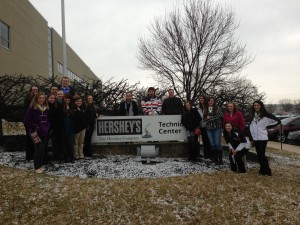Fall Semester (*Pathogenic Microbiology and Microbial Ecology are taught alternating years)
Molecules, Cells & Animal Systems (Bio111)
The study of the chemical and cellular basis of life, human and animal anatomy and physiology, cellular reproduction, heredity and animal development. For Biology majors and those students taking additional biology courses. This course fulfills one of the Natural and Physical Sciences Core requirements for Biology majors.
Pathogenic Microbiology (Bio336)
An intensive study of the disease-causing microorganisms of humans. General epidemiology and cellular processes of pathogenesis of bacteria and viruses will be examined. The human immune system also will be covered in context of how bacteria and viruses subvert host defenses to infect, survive and grow in the host.
Pathogenic Microbiology Laboratory (Bio336L)
A lab intensive opportunity to study disease-causing microorganisms. We will use a hands-on approach to study general epidemiology, cellular processes of of bacteria involved in pathogenesis, as well as to use bioinformatics to identify key genes operating in pathogens.
Microbial Ecology & Diversity (Bio335)
An intensive look at the physiology of microorganisms and how microbial metabolism plays a role in the cycling of nutrients in nature. Students will be exposed to the techniques commonly used to study microorganisms in their natural environment. The concepts of using microorganisms for bioremediation also will be discussed.
General Microbiology (Bio235)
A study of the morphological, physiological and ecological characteristics of bacteria, as well as disease transmission and principles of control. A laboratory gives practice in the isolation and identification of bacteria.
